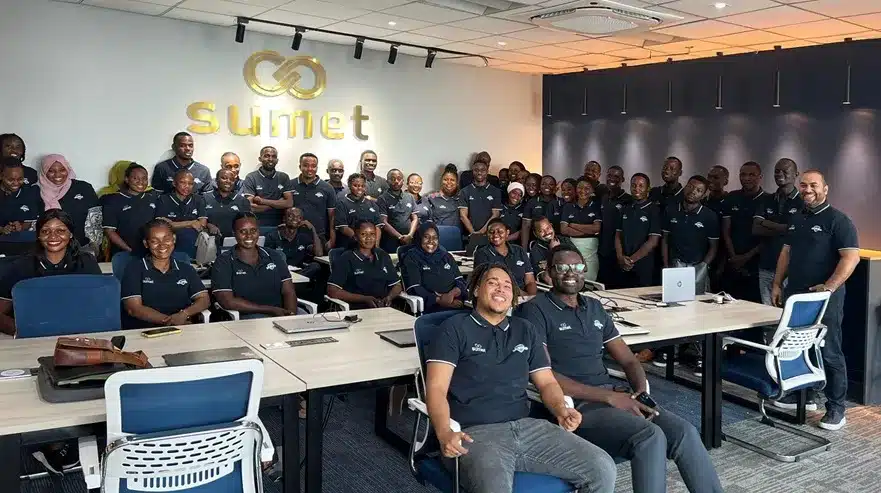Tanzania’s Booming Tech Sector: What Traders Need to Know
Tanzania’s tech sector in 2025 is witnessing dynamic growth driven by expanding internet access, significant investment inflows, a vibrant startup ecosystem, and government initiatives focused on digital transformation. For traders eyeing opportunities in Tanzania’s fast-growing digital economy, understanding current trends and challenges is crucial.
1. Rapid Digital and Economic Growth
Internet penetration in Tanzania has increased from 6% in 2012 to over 37% in 2025, enabling more consumers and businesses to engage online. The economy grows steadily at around 6% annually, with technology becoming central to sectors like fintech, agritech, and digital service delivery. Tanzania’s young population (median age approx. 17.4 years) provides a growing market and tech-savvy workforce.
2. Investment and Startup Momentum
Tech startups raised over $559 million in funding in 2024, making Tanzania one of Africa’s top five innovation hubs. Investment has grown sharply from $1.1 million in 2017, fueled by incubators, accelerators, and more than 54 innovation hubs nationwide. This vibrant ecosystem fosters thousands of tech jobs and business opportunities in technology products and services.
3. Key Sector Innovations
-
Fintech: Mobile money, AI-driven lending, and blockchain solutions enhance financial inclusion and drive commerce.
-
Agritech: IoT devices and AI improve farming yields and supply chain management.
-
Cybersecurity: The rise of cloud services pushes demand for advanced security solutions to protect businesses and consumers.
-
E-Government: Digital services such as online tax filing and digital IDs streamline bureaucracy and boost digital adoption.
4. Supportive Government Policy & International Partnerships
Tanzania’s Development Vision 2050 and National Development Plans prioritize technology and innovation. The government invests heavily in broadband infrastructure and digital skills development. Collaborations with international bodies like JICA and German partners supply grant aid and technical assistance, supporting tech-enabled trade sectors.
5. Market Access & Trade Opportunities
Events like Tanzania Trade Show 2025 and Indusmach Tanzania create platforms for traders to present tech products, industrial machinery, and IT services. These forums help forge business relationships with local stakeholders and expand market reach.
6. Challenges & Considerations
-
Coordination between mainland and Zanzibar tech policies can be fragmented.
-
R&D investment remains relatively low.
-
Digital skills penetration in the workforce is about 25%, indicating a talent gap.
-
Infrastructure challenges include spotty electricity and internet access in some rural areas.
Long-term local collaboration and flexible business models are key for success.
7. Talent and Job Market Insights
Tanzania’s tech job market is expanding, with competitive salaries for software developers, cybersecurity experts, data analysts, and cloud specialists. Senior tech roles may earn up to TZS 72 million annually. This growing talent pool is valuable for tech companies and traders looking to establish or expand operations.

Frequently Asked Questions (FAQs) on Tanzania’s Tech Sector for Traders
-
How big is Tanzania’s internet user base in 2025?
Over 37% of the population are internet users, predominantly accessing via mobile devices. -
Which sectors in Tanzania offer the biggest tech-driven trade opportunities?
Fintech, agritech, cybersecurity, cloud computing, and e-government services are prime sectors. -
How active is Tanzania’s startup ecosystem?
Very active, with over $559 million raised in 2024 and more than 54 innovation hubs nationwide. -
What role does fintech play in Tanzania’s economy?
Fintech promotes financial inclusion through mobile money, digital lending, and blockchain applications. -
Are there government incentives supporting tech traders?
Yes, policies encourage broadband expansion, digital skills training, and innovation support programs. -
How accessible is broadband internet across Tanzania?
Broadband is expanding but there are still rural and infrastructural gaps. -
What challenges do tech businesses face?
Limited R&D investment, regulatory complexity, digital skills shortages, and inconsistent infrastructure. -
How can traders participate in Tanzania’s tech market?
By engaging with innovation hubs, attending trade shows, partnering locally, and tailoring products to market needs. -
What is the average salary range for tech professionals?
Salaries vary widely; senior tech roles can earn up to TZS 72 million annually. -
Is cybersecurity a concern for Tanzanian tech traders?
Yes, with digital growth, demand for cybersecurity products and services is rising sharply. -
How does Tanzania’s youth population impact the tech sector?
Youth drive innovation, entrepreneurship, and form a major user base for digital services. -
Are international partnerships important for tech growth?
Absolutely; collaborations bring funding, training, and infrastructure development. -
What types of agritech innovations are thriving?
IoT-based soil and weather sensors, supply chain digitization, and AI-driven farming advice. -
Do Tanzanian government digital initiatives benefit traders?
Yes, digital IDs, e-tax filing, and licensing reduce bureaucracy and create new service opportunities. -
What upcoming events should traders attend in Tanzania?
Tanzania Trade Show 2025, Indusmach Tanzania, and assorted tech innovation fairs.
Final Summary
Tanzania’s tech sector offers enormous potential for traders willing to engage with a youthful and rapidly digitizing market. Strong investment, supportive policies, and growing digital infrastructure underpin a vibrant ecosystem ripe for fintech, agritech, cybersecurity, and e-governance solutions. Being aware of challenges like skill shortages and infrastructure gaps and leveraging local partnerships will help traders succeed in Tanzania’s booming digital economy.
If you would like, I can assist with sector-specific entry strategies, contacts for innovation hubs, or more detailed market analysis.
Categories: Artificial Intelligence

.webp)










Leave a comment